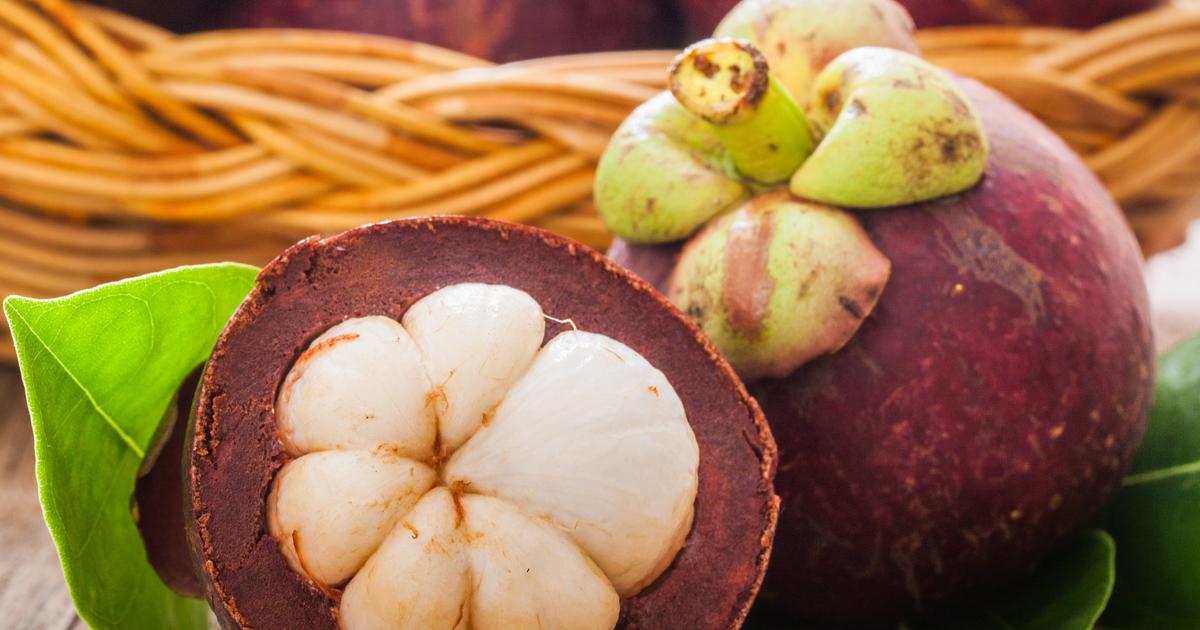Health Benefits Of Mangosteen
A favorite fruit of Queen Victoria, mangosteen is often eaten in jams and desserts. The tropical fruit grows mainly in Southeast Asia, India, Columbia, Puerto Rico, and Florida, and it is roughly the same size as a small orange. With a thick, red rind, the flesh of the fruit is white. The rind of mangosteen is a deep purple when ripe, and the fruit is both tart and sweet. For centuries, the bark, rind, pulp, and juice of the mangosteen have been used for medicinal purposes, particularly in Southeast Asia. Mangosteen juice is frequently sold in blended juice, and mangosteen supplements are available. Mangosteen extracts are also included in skincare products.
The health benefits described below are just a few of those associated with the mangosteen.
Rich In Antioxidants
Mangosteen contains several antioxidants, including vitamin C and folate. Antioxidants reduce the damaging effects free radicals can have on the body. Mangosteen is particularly rich in antioxidants known as xanthones, and these compounds have been shown to protect against diabetes, cancer, aging, and inflammation. A Japanese study found xanthones reduce the growth of leukemia cells, and research conducted in Thailand showed these antioxidants are similarly effective in slowing the growth of bile duct cancer. The anti-inflammatory effects of xanthones have been demonstrated in both animal and human studies. A Thai study suggests the consumption of xanthones is associated with reduced inflammation among obese patients, and Chinese researchers have found patients who have had heart attacks have less heart damage if they are treated with xanthones.
Uncover more health benefits of mangosteen now.
Helps Control Blood Sugar

Mangosteen is a high-fiber food, and research suggests adequate fiber intake helps control blood sugar. A one-cup serving of mangosteen contains 3.5 grams of fiber, roughly fourteen percent of the recommended daily intake for adults. Multiple studies have found soluble fiber (the type found in mangosteen) could aid in the prevention of diabetes. Adequate soluble fiber intake slows the body's absorption of sugar, which could potentially enable patients with diabetes to have better glucose management and reduce the need for medications.
According to current guidelines, men who are fifty years old and younger need thirty-eight grams of fiber each day, and women of this age need twenty-five grams. Men who are fifty-one years old and older should aim for thirty grams of daily fiber intake, while women in this age group need twenty-one grams. Laboratory and animal studies have both shown the xanthones in mangosteen are likely to benefit blood sugar regulation. In addition, a twenty-six-week research study conducted on obese patients found the daily consumption of four hundred milligrams of mangosteen extract was associated with significant reductions in insulin resistance (one of the major risk factors for diabetes) as compared to a control group.
Uncover more mangosteen health benefits now.
